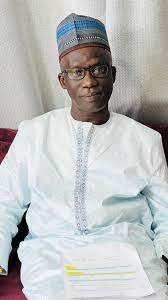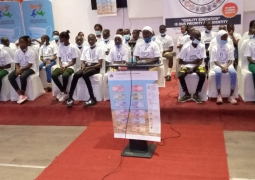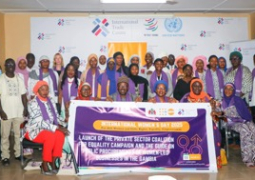
At a recent presser held at the Regional Education Directorate in Kanifing, Adama Jimba Jobe, deputy permanent secretary of programme at MoBSE, said language in education policy is built upon the nation's ambitious vision for high-quality education. It recognises the pivotal role of national languages in facilitating effective basic education, ensuring that learners comprehend classroom instruction and materials, thus fostering a conducive environment for learning.
Commenting on the pivotal role of teachers in implementing the policy, Jobe acknowledged that MoBSE will conduct comprehensive pre-service and in-service training programmes to equip teachers with the necessary pedagogical skills and language proficiency to ensure effective language-medium instruction.
‘Teacher deployment will be guided by considerations of language fluency, with an emphasis on supporting multi-lingual teachers and fostering cultural sensitivity by engaging local communities and promoting teacher retention strategies.’ he added.
Ansu Sanyang, programme coordinator at MOBSE, disclosed that there will be a periodic training on language of teachers' choice, focusing on methodology and provide resources for national language-medium pedagogy.
Sanyang informed that recruitment will be based on language fluency and cultural sensitivity and MoBSE will provide language-specific resources for teachers and support strategies to retain them.
This Language in Education Policy, he noted, embodies a holistic approach to education, rooted in research, stakeholder consultation and national aspirations.
He said in prioritising national languages, fostering language proficiency and promoting inclusive practices, the policy lays the foundation for equitable, high-quality education that empowers Gambian learners and strengthens the nation's socio-cultural fabric.
‘Leveraging national languages as medium of instruction at foundational levels enhance learning outcomes, foster cultural pride and fortify national unity.’ he said.
He recalled that in 2014, it was estimated that less than 1% of the total Gambian population speak English at home which means that at least 99% of Gambian children have been raised speaking only Gambian languages in their homes.
Thus, he said those children are not likely to speak or understand English, which he added, has caused serious learning challenges for Gambian pupils in using English as medium of instruction.
The solution to these problems, he observed, is to incorporate national languages into the education system for both lower and upper grades for better understanding.





